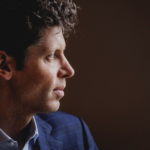The three know well how difficult it can be to change organizations. So they decided to instead share their insights on an individual level. “Instead of writing a book about how companies can change, let’s write a book about everything we would have wanted to know as we were working our way through,” Yee says.
Yee, now McKinsey Global Institute director, argues that while today’s climate presents its own challenges, it’s never been easy for women. “The working world is not an even playing field for women,” she says.
Yee and her coauthors advise women to learn skills on the job, something they call building “experience capital.” That experience accounts for half of most people’s lifetime earnings, with the other half credited to education and other skills. But men have more opportunities to learn on the job—an under-discussed contributor to pay disparities. “[Women] are not getting the same opportunities to learn, develop new skills on the job, or make strategic career decisions in the same ways or at the same rates as men,” the authors write.
Entrepreneurship skills—even within large organizations—are key to progressing. Taking initiative, suggesting new ideas, or starting new ventures all fall under this mantle.
If that’s not happening, however, the authors have another piece of advice: Know when to leave. They call that being the “portfolio manager of your own career.”
It’s a philosophy that applies to the current DEI backlash as well: Know what matters. “I’m not worried about what companies title their work. I’m worried about the substance,” Yee says. ”Women of all tenures can make sure that the programs that were making a difference continue to happen. If there were programs that weren’t helping, don’t worry about them—let them go.”









